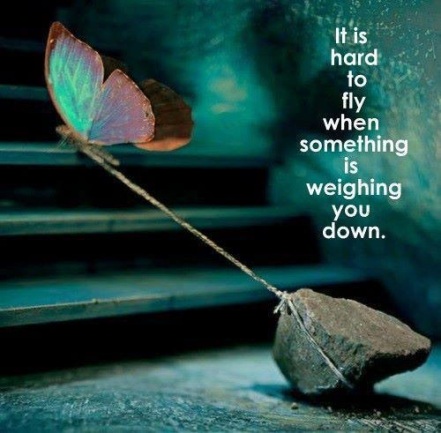***
1. In chess, every move has a purpose. Life obviously cannot be lived with this much unceasing calculation, nor should we want to live it that way, but there are times when we must align our actions with a predetermined strategy, instead of bumbling through it.
***
2. Play for the advantage. If you already have it, maintain it. If you don’t have it, seize it.
***
3. Everyone’s playing. Sometimes it’s a friendly, often it is more serious. The problem is that not everyone knows they’re playing – even after they have made a move.
***
4. Seize the initiative. If you wait around for someone else to make a decision for you, they will… and you probably won’t like how it turns out.
***
5. Learn to spot patterns. There are often clearly defined lines of success that work well. Learn to see these when they repeat, and take advantage of them.

6. Don’t get stuck on the formula. A little bit of creativity and lateral thinking can often take you to new heights.
***
7. Ignore what your opponent is trying to do at your own peril. We often get so absorbed in our own games and machinations that we ignore what is going on around us. Be aware of threats and alert to opportunities.
8. Simplify.
***
9. If you only play patzers, you never really improve – take on a few tough challenges, and even if you lose, try to learn something new.
10. Cut your losses. Sometimes you are going to lose material. Try to minimize your losses and move on.
11. Play the board, not the player. Don’t target your responses at people, target what they say and do. There is a difference.
***
12. Sometimes you get stuck in a position known in chess as zugzwang: where whichever move you make is a bad one. This is just the way it goes sometimes, in chess and in life.
13. There is nothing more satisfying than a discovered attack: Pretending to do one thing while attacking somewhere else. Learn to play and live less obviously and on more levels. This makes you less predictable and more interesting.
***
14. Be prepared to sacrifice material for position. Sometimes even the greatest material sacrifice can result in a winning position later on.
***
15. If you spend all of your time chasing lowly pawns, you may be on the receiving end of an opponent who cares less about small victories and more about winning the war.
16. A threat is best met with a move that improves your own position. Don’t get trapped into mindlessly trading moves and material in anger. Sometimes the solution is more gentle and cerebral.
***
17. You don’t have to be a devious swindler to win… you just have to be better.
***
18. We all blunder from time to time. This does not mean we should give up and run away. Often when you’re sure there is no way out after a bad mistake, you will be given a lifeline.
19. When someone makes a move that you cannot understand, don’t read more into it than you need to. Sometimes people just make silly moves – that’s all there is to it.
20. Have a Plan B. And a Plan C. If none of those work, you’re probably doomed.
***
21. Play for the middle. Don’t hold back too much, and don’t push through too early. Your opportunity will come.
***
22. How you start a game determines how you will finish it. Play wisely.
***
23. If an opening appears, seize it immediately.
***
24. Don’t get pinned down. Where something more cherished cannot be brought into play because it is stuck behind something trivial, make every effort to get it into the game – as soon as possible.
25. In the endgame, attack the King by focussing your attention on his escape squares: When you are in the final stretch, and about to win, anticipate what could go wrong and plan accordingly.
***
26. Be flexible. It seldom goes the way you planned – adjust and continue.
27. If you are feeling boxed-in, free things up.
***
28. Where possible, trade inferior material and positions for better ones.
***
29. The little guys on your side matter. Look after them.
30. Accumulate small advantages.
***
31. There are no foregone conclusions in life or in chess.
32. Ignore meaningless threats. Anticipate and deal with dangerous ones swiftly.
***
33. Never rest on your laurels. Keep thinking, looking for new opportunities and trying to generate new ideas.
34. Don’t be overly impressed with lofty words or titles. The only thing worse than being overly diffident towards those who outrank you is being dismissive of those inferior to you.
***
35. Keep calm and move slowly.
***
36. Replace wishful thinking with action.
37. If you lose, do so graciously and try to learn at least one important lesson.
38. Sometimes a draw is as good as a win. But a draw is always better than a loss.
***
39. Keep your options open and always have an escape route.
40. Surprise and impress people with unconventional moves. But not with dumb ones. Creativity always has a purpose – doing something wild and crazy just for the sake of it may be fun at the time, but ultimately has no value. Break the rules – but only if it serves a good purpose.
***
41. Appraise your position honestly. If it is bad, do something about it – if it is good, make it even better.
42. Don’t get swept up by distractions.
***
43. Narrow down your choices. And then decide. Take your time, but settle on one plan of action… and then do it!
***
44. Sometimes you have to sacrifice in order to achieve a break-through.
***
45. Always consider the whole board when deciding on a move: decisions made with too narrow a focus are often bad.
46. Connect your pieces cleverly. Collaboration and cooperation are the keys to success.
***
47. Look beyond the obvious.
48. Enjoy yourself.
49. Deep and meaningful is always better than superficially pretty.
50. If all else fails… fake it.
…
Don’t forget to look me up on Twitter: http://www.twitter.com/SeanHCole




















[…] games (namely strategy games) have helped inspired me to be successful. Just as board games like chess can teach us plenty of valuable lessons, strategy games can also help foster entrepreneurial and goal-driven mindsets. Even if you […]
LikeLike
you need chess to teach u that? All of it is just plain common sense, which doesnt seem to be so common nowadays. Chess is a big waste of mental energy. Better use ur brain to do some useful work and solve real-world problems. Look at the GMs, they look like self-obsessed retards.
LikeLike
The problem with common sense is that it isn’t so common. And often not so sensible. It’s a similar the bug with thinking. As teachers, for example, we often tell especially young people to think more deeply about a particular issue – as if it’s something that they can just do. And to an extent, they can. But we can also train them to think better by giving them mental models such as visible thinking structures that they can work with. Chess is a similar mental model. It gives you templates to think through. But it isn’t only chess. I have a friend who uses his experiences with woodworking to think with, and another who thinks through sports analogies.
Anyhow, sorry you didn’t enjoy the post.
LikeLike
In conclusion, the best thing you can do for your life, is to play chess. As it was shown here, chess is a game that develops perceptiveness, imagination and the ability to focus on a specific task. Play with computer, friends, if you have kids, play with them. To practice, start with the book by Maksim Aksanov (net-boss.org/chess-puzzles-for-kids-by-maksim-aksanov)
LikeLiked by 1 person
[…] Living Strategically: 50 Lessons Chess Teaches You About Life […]
LikeLike
[…] Living Strategically: 50 Lessons Chess Teaches You About Life This was my Answer. […]
LikeLike
This is wonderful….
Well applicable everywhere in life..
Thanks for a lovely content….
keep sharing…
LikeLiked by 1 person
Well this gave me a lot to think about….And I love playing chess.
LikeLike
Reblogged this on Jade Kamailemakanaaloha Sohriakoff.
LikeLike
Rule #1 Always strive for success, even if it seems unlikely or even impossible because chance favors no man/woman.
LikeLike
[…] It even teaches you life lessons. […]
LikeLike
[…] Source: https://seanhamptoncole.wordpress.com/2013/03/26/living-strategically-50-lessons-chess-teaches-you-ab… […]
LikeLike
Chess is great, and you will love it if you will learn more about it. To improve at chess you need to study endgames, tactics and strategy. You can learn these from books. Just playing chess is not enough to improve your game, you need to study chess.
LikeLike
Points 5 and 6 should be some of the first lessons an educator learns – look for patterns and recognise an issue or a solution and using the same formula or strategy will not get you to the same place every time.
Thank you for the share and the creation that went into this.
LikeLike
Reblogged this on Chess classes in Brooklyn. and commented:
Just saw it blogged somewhere else and I thought I would repost it- there are many parallels between making decisions in chess and in daily life, and there are plenty of them, as you can see here!
LikeLike
Reblogged this on Lenny Says and commented:
Since being on the high school chess team, I haven’t played much over the years. What a pity! However, I did not ever think about chess quite like this blogger, so thought I’d reblog this here…
LikeLike
Reblogged this on Mark Hayter's Blog and commented:
Adds to the #EdChatSA conversation last night.
LikeLike
[…] *** 1. In chess, every move has a purpose. Life obviously cannot be lived with this much unceasing calculation, nor should we want to live it that way, but there are times when we must align our ac… […]
LikeLike
As a chess player myself, I find this post very thought provoking. Great perspectives there.
I particularly like no. 10, because it is one of the hardest things to do in life.
LikeLike
Great post Sean. Love all the illustrations.
LikeLike